1. Intro blurb
1.1. The financial markets really didn't work as they were meant to in the run-up to the 2008 crisis. No surprises there. But it turns out that many of the things that went wrong were the result of behaviour that was illegal, even at the time. It's taken a long time for most of this behaviour to come through the courts. But it's now well and truly here, with new cases coming in thick and fast. What are all the different scandals? Do they matter? Who'll do well out of them?
2. Who'll win?
2.1. The "no fee no win" lawyers who are collecting pay-outs on behalf of plaintiffs in the mis- selling cases
2.2. All of us, eventually, through banks that are more careful to comply with the law while making money
3. Who'll lose?
3.1. The shareholders of the banks involved. But not that badly. The total of the fines are still only a drop in the ocean of the eye-watering profits that the banks are back to making
3.2. A few employees who have left a trace of their activities, and a few of their bosses who will be shamed into going
4. Who cares?
4.1. Markets that work well rely on basically truthful behaviour. If trust in a market is eroded, people keep out of it - think of the used car market.
4.2. All those at the receiving end of bad financial advice who have been through real hardship because of the sharp practices.
5. What cases? Who's involved?
5.1. LIBOR
5.1.1. The London Inter Bank Overnight Rate (LIBOR) is a key interest rate that is used as a benchmark in millions of financial contracts. And this benchmark was being fiddled to traders' advantage. The rate is set by banks announcing what interest rate they can borrow at. The trading desks of banks were simply asking those reporting their lending rates to lie in whatever direction suited them.
5.1.1.1. Instant messaging exchanges released as part of the RBS probe give a flavour of the manipulation: http://www.guardian.co.uk/business/2013/feb/06/rbs-libor-fixing-transcripts-exchanges "Swiss Franc Trader: [Primary Submitter] pls can we get super high 3m[,] super low 6m Swiss Franc Trader: PRETTY PLEASE! Primary Submitter: 41 & 51 Swiss Franc Trader: if u did that[,] i would lvoe [sic] u forever Primary Submitter: 41 & 55 then … Swiss Franc Trader: if u did that i would come over there and make love to you[,] your choice"
5.1.2. US regulators and UK FSA
5.1.3. Barclays
5.1.3.1. $460m paid
5.1.4. RBS
5.1.4.1. $615m paid
5.1.5. UBS
5.1.5.1. $1.5bl paid
5.1.6. alleged
5.1.6.1. Citigroup(US:C) , J.P. Morgan Chase & Co. (US:JPM) , Deutsche Bank (US:DB) and ICAP (UK:IAP)
5.2. Ratings agencies
5.2.1. Department of Justice
5.2.2. S&P
5.2.2.1. Parent company, McGraw Hill, has refused a $1bl out-of-court settlement
5.2.3. The sub-prime crisis - the crisis which sparked everything off - involved banks selling mortgages to risky customers and then repackaging those mortgages in complicated ways that made them look safer. Crucial to that operate were the ratings agencies who are paid by the banks to offer and independent assessment of the risks associated to any financial product dreamed up by the banks. The Department of Justice in the USA is going after the largest, Standards and Poors, claiming that they weren't quite independent enough in their activities.
5.2.3.1. The messages released by the DoJ give a flavour of what was going on: Analyst 1: btw that deal is ridiculous Analyst 2: I know right…model def does not capture half of the…risk Analyst 1: We should not be rating it. Analyst 2: we rate every deal…it could be structured by cows and we would rate it. Read more: http://www.newyorker.com/online/blogs/johncassidy/2013/02/burning-down-the-house-of-s-p.html#ixzz2KhG0lWKU
5.3. PPI misselling
5.3.1. £12bn total
5.3.2. Barclays
5.3.3. Lloyds
5.3.4. HBOS
5.3.5. Private individuals were offered debt and then asked to insure against not being able to pay in case of illness or accident. The insurance cost was often hugely inflated. The banks made so more money selling insurance than loans that staff were given special bonuses to sell the bundles.
5.4. Small business interest rate swaps
5.4.1. £ To be determined
5.4.2. RBS
5.4.3. Lloyds
5.4.4. Barclays
5.4.5. HSBC
5.4.6. Small businesses were sold complicated hedging products that insured them against rises in interest rates - but did not allow them to benefit from falls in interest rates. The products were often opaque and intended for extremely sophisticated buyers, not for corner butchers and new agents.
5.5. Money laundering
5.5.1. HSBC
5.5.1.1. Through its Wakovia subsidiary in the USA, HSBC was caught red-handed laundering the cash of Mexican drug traffickers
5.6. Sanctions busting
5.6.1. Standard Charter
5.6.1.1. The bank falsified documents to be able to continue to trade with Iran in the face of US sanctions
